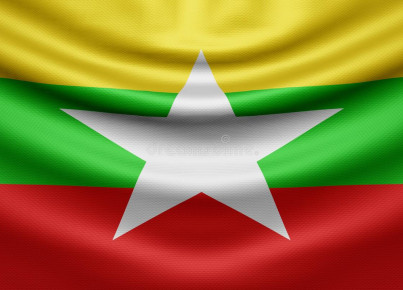Foreign companies operating in Myanmar are struggling to continue their operations given the political and economic situation. But they are also reluctant to leave: let's see why.
Following the COVID-19 pandemic and the political and economic crisis triggered by the military coup last February, foreign companies present in Myanmar are in a very critical situation, as confirmed by the collapse of investments that these companies have made in the country, at their lowest since eight years.
The Burmese economy, according to the Asian Development Bank, has contracted by 18.4% in the last year and the situation does not look set to improve in the near future, so much so that the International Monetary Fund has recently revised downwards its forecasts for the rate of economic growth in 2022. At the root of this, there is the collapse of the local currency, the kyat, and the significant increase in food prices, all factors contributing to the growing unease of the population.
Political uncertainty, slumping local demand and currency volatility have prompted many foreign companies to close or downsize local operations. Liquidity shortages and banking sector dysfunctions have also limited the ability of businesses to pay employees and suppliers. Internet access was also severely restricted in the three months following the coup. These shocks weakened consumption, investment and trade and also limited the operations of companies in the supply of labor and other inputs.
Already in the first months after the coup of the regime, large companies such as the energy giants EDF and Petronas, but also the Thai group Amata and the Singaporean engineering company Sembcorp ceased or suspended operations in Myanmar. In addition, British American Tobacco (BAT) announced last October that it would leave the Burmese market at the end of 2021, although its departure was officially motivated by purely commercial decisions. In fact, having started operations there in 2013 with an initial investment of $50 million, BAT's exit from Myanmar after less than a decade reflects the critical situation the country has plunged into. Also in the same month, the Kempinski Hotel, in the capital Naypyidaw, which had also hosted President Barack Obama during his state visit in 2014 and was an important symbol of the country's openness, ceased operations.
But exiting Myanmar is not an easy step for all companies. Many, in fact, have invested in multi-year infrastructure, and an immediate exit strategy is impractical. This is the case, for example, of Australian natural gas giant Woodside Energy, which merely states that "all business decisions in Myanmar are under review."
Another company that is struggling to leave the country, albeit for other reasons, is Norwegian telecommunications giant Telenor. The latter is strongly motivated to cease operations in Myanmar not only because of the serious deterioration of the business environment, which has resulted in a loss of over 782 million US dollars, but also in order not to give up to government attempts to control the company's activities. More specifically, the military junta has tried several times, although in vain, to force Telenor to limit web traffic and intercept users in order to allow the authorities to spy on calls and messages.
However, the company is still waiting to obtain the approval for the sale of the activities to the Lebanese company M1. This comes in the wake of a confidential order, issued last June, requiring senior executives of both foreign and Burmese telecommunications companies to leave Naypyidaw only with special permission, which does not seem to be forthcoming.
Moreover, it should not be underestimated that the problematic financial situation only complicates the possible exit of the companies. The banks, which were stormed by long queues at ATMs at the beginning of this year, are still under pressure and liquidity is scarce, making repatriation of the remaining capital extremely difficult. As if that were not enough, the pandemic has also arrived, imposing travel restrictions and onerous quarantine requirements for those crossing borders.
There remains a profound unpredictability about the political situation in the medium and long term, which increases the margin of uncertainty for foreign companies as to whether or not they should remain in the country. These companies, which have been investing in Myanmar since 2011, when it was hoped that the process of democratic transition would be irreversible, are now in doubt whether to pack their bags or ride out the storm.






